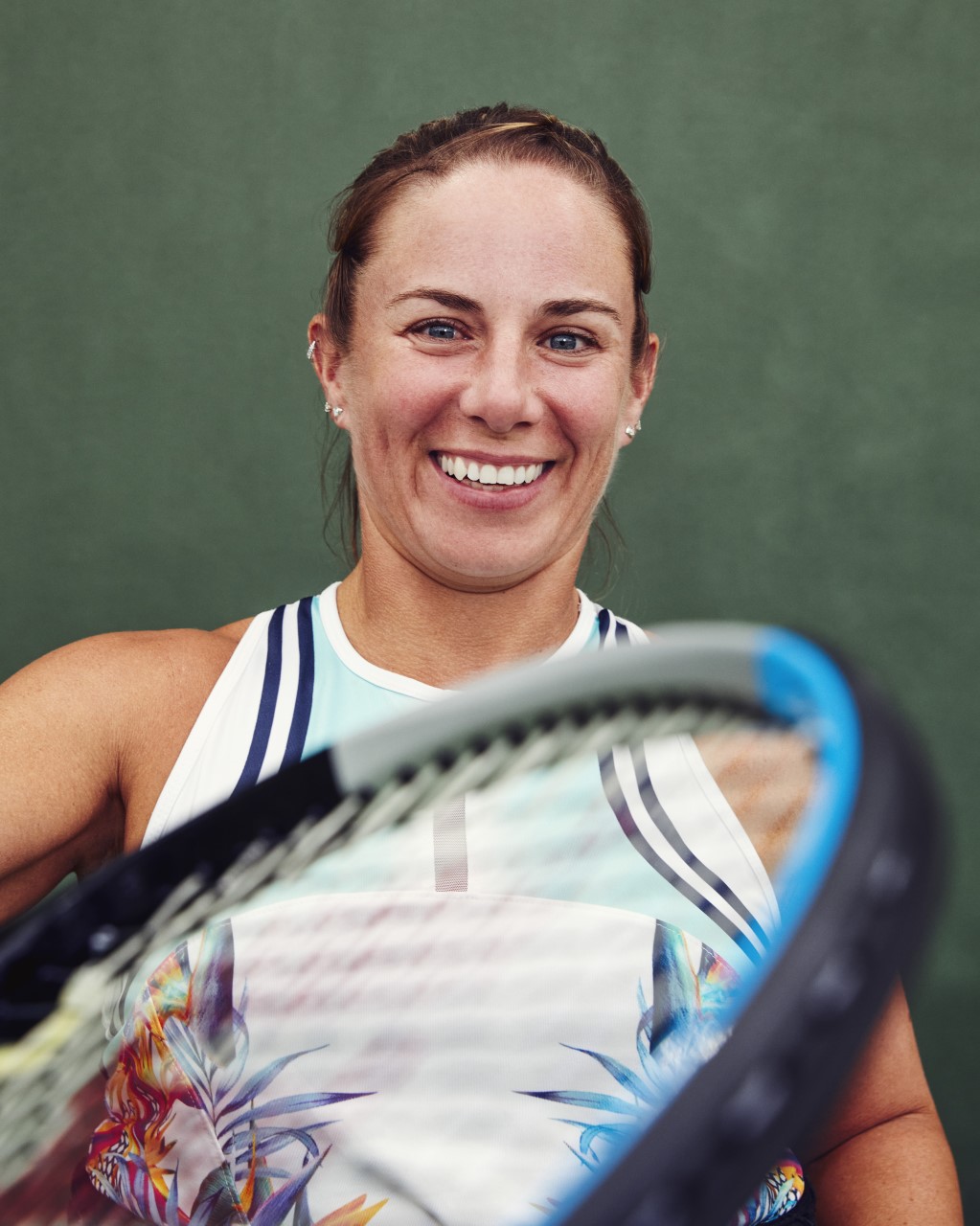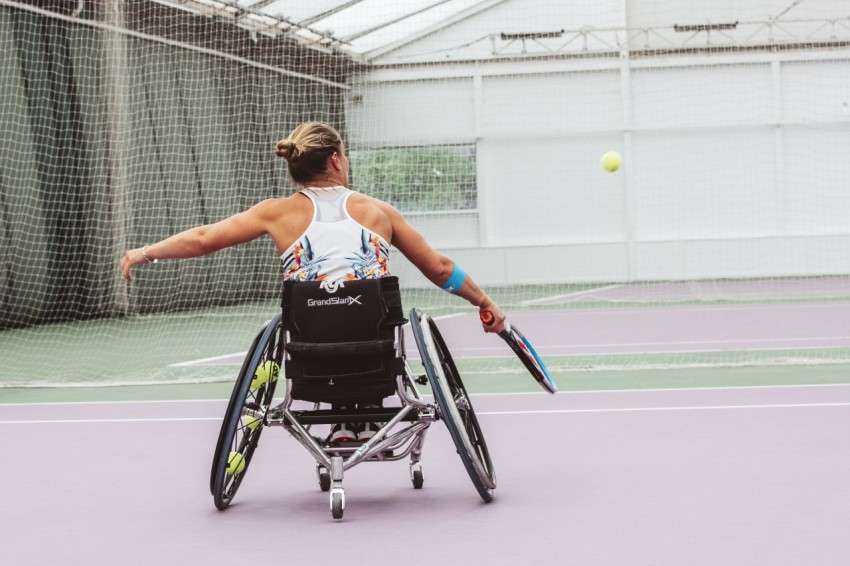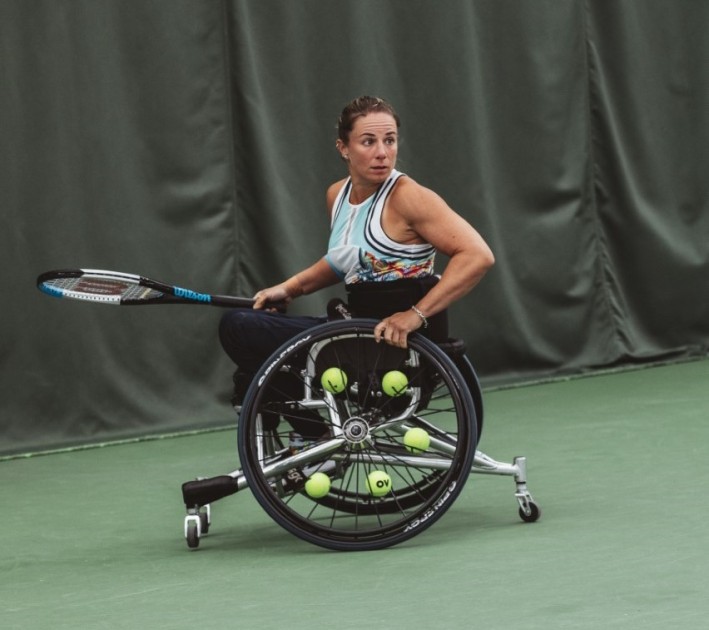Paralympian and motivational speaker, Lucy Shuker, on the power of positivity
“We're all going to face challenges and we’re not going to beat them every time, but what’s important is how we navigate that. We’re all very good at being hard on ourselves, but I think it’s important to allow ourselves some forgiveness here and there. You’re going to fail, but if you can learn from that failure, then it’s not been for nothing.”
Paralympic wheelchair tennis player, Lucy Shuker, is the third guest on Aspire, a podcast by Scotty's Little Soldiers aimed at 18- to 25-year-olds. She discusses the life-changing motorbike injury that resulted in her being paralysed from the chest down, finding the good in bad situations, discovering wheelchair tennis and making history within the sport – most recently winning silver in the Tokyo 2020 Paralympics.
The podcast is hosted by 20-year-old Alex Thomas, who has been a member of Scotty’s Little Soldiers since 2015. Alex’s dad, Major David Michael Thomas, served in the REME (Royal Electrical and Mechanical Engineers) and died when Alex was just four years old. The Aspire podcast provides him and other young people with an opportunity to hear from inspiring individuals who have overcome challenges and achieved great things.

Becoming paralysed in a motorcycle crash
The year was 2001. 21-year-old Lucy Shuker had just finished university, started her career and passed her driving test. 12 days later, she was involved in a severe motorcycle crash which resulted in her being paralysed from the chest down.
“I don’t remember the accident itself, just what came after. Lying on the side of the road with mud all over my visor, telling the friend I was with that I couldn’t feel my legs. I was taken to hospital, and that’s where I stayed for ten months.”
Rather than having metal rods inserted into her back, Lucy and her doctors decided to let the bones naturally fuse back together.
“It was a very dark time. I spent seven weeks lying on my back, being turned by the nurses while the bones fused and became stable. There was no operation that could magically fix me. I felt like I lost a sense of who I was during that time. Three-quarters of my body had stopped working and it took a couple of years to readjust and find out who I was again.”
Staying positive
Despite everything she was experiencing, however, Lucy was still able to find positives and refused to let her accident define her.
“I was in hospital with people who had experienced worse accidents than me and were dealing with even more difficult disabilities. Yes, I’d lost the function of my legs, but there were people in there who had lost use of even more. I ended up helping them out where I could, which made me realise that, actually, it wasn’t the end of the world. There are still things I could do. I could help people and people could help me. No problem is too difficult, you just need to find new ways around them.”
Competing in the Paralympic Games
On leaving hospital, Lucy met Pete Norfolk, a Paralympic Wheelchair Tennis Champion.
“We got talking and I mentioned that I used to play badminton to quite a high level. Wheelchair badminton wasn’t a recognised sport at the time, so he suggested I try wheelchair tennis. 21 years and three paralympic medals later, I’m still doing it!”
Lucy first qualified for the Paralympics in 2008. She didn’t make the podium, but the experience had a huge impact and gave her the motivation to make sure next time would be different.
“Just to get to a Paralympics was an achievement. I was told I would never be able to make it as my disability was too severe compared to others competing. In the end I lost to that year’s bronze medallist, but the experience of that match helped me realise it wasn’t just a fluke. I was quite good at this sport and I knew I could get better still.”

Winning bronze at the London 2012 Paralympics
At the London 2012 Paralympic Games, Lucy competed in the women’s doubles alongside Jordanne Whiley. The pair took home the Bronze and became the first women to win a medal for the UK in wheelchair tennis.
“London was incredible. It was the year the Paralympics was really propelled into the limelight – it was selling out stadiums. It's amazing to win a medal full stop, but to win in that environment is something else. And, even if we hadn’t won, competing in a bronze medal match is just such an experience. We’d have gone home with some brilliant memories either way.”
The pair returned for the Rio Paralympics in 2016, where they once again took home the coveted bronze medal.
Competing during COVID
In 2021, Lucy returned to compete in the Paralympics for a fourth consecutive year. The games were held in Tokyo, however due to Covid-19 they had been delayed by a year, and many health and safety measures were in place that had not been present in previous years.
“Tokyo was a strange one. It would have been incredible were it not for Covid – the stadiums they had constructed were first class, but movement was restricted and we couldn’t watch other people compete. We weren’t able to use the communal transport or food hall either, so we had food being delivered to us and very little interaction with other competitors. It had a very different feel to the other games and I hope it doesn’t ever get repeated. It really tested your focus and ability as an athlete to go through all this stuff and not let it affect you.”
Going for gold
“I think the London win will always be the one that I really, really treasure. It was an unexpected medal in my home games. My first ever medal. The Tokyo silver was great, but obviously, as a sportsperson, there’s that bit of you that won’t settle for anything less than gold. Coming so close gives you a flavour of it. To have your own national anthem playing on the podium is the ultimate dream. I’m still very proud of the silver, but I want the gold.”
Asking for help
Throughout her life and career, Lucy has overcome some huge hurdles, but even when things haven’t gone as planned, she’s remained determined to learn something from it and continue improving herself.
“I always say to be kind to yourself. We're all going to face challenges and we’re not going to beat them every time, but what’s important is how we navigate that. We’re all very good at being hard on ourselves, but I think it’s important to allow ourselves some forgiveness here and there. You’re going to fail, but if you can learn from that failure, then it’s not been for nothing. After my accident, it really hit home for me how important it is to ask for help, and there’s lots of people who can offer it to you. Whether that’s friends or family or a charity like Scotty’s. Be kind to yourself, be kind to others and remember that we're all in this world together.”

For the full interview, check out Scotty’s Aspire Podcast – available on all streaming platforms.
Scotty’s Little Soldiers is a charity dedicated to supporting children and young people (0 to 25 years) who have experienced the death of a parent who served in the British Armed Forces.
Inspired by the experience of Army widow Nikki Scott, following the death of her husband Corporal Lee Scott in Afghanistan in 2009, the charity, which was set up in 2010, provides support and guidance to hundreds of bereaved military children and young people throughout their childhood.
Scotty’s provides its members with access to bereavement support, outstanding development opportunities and the chance to smile again.


